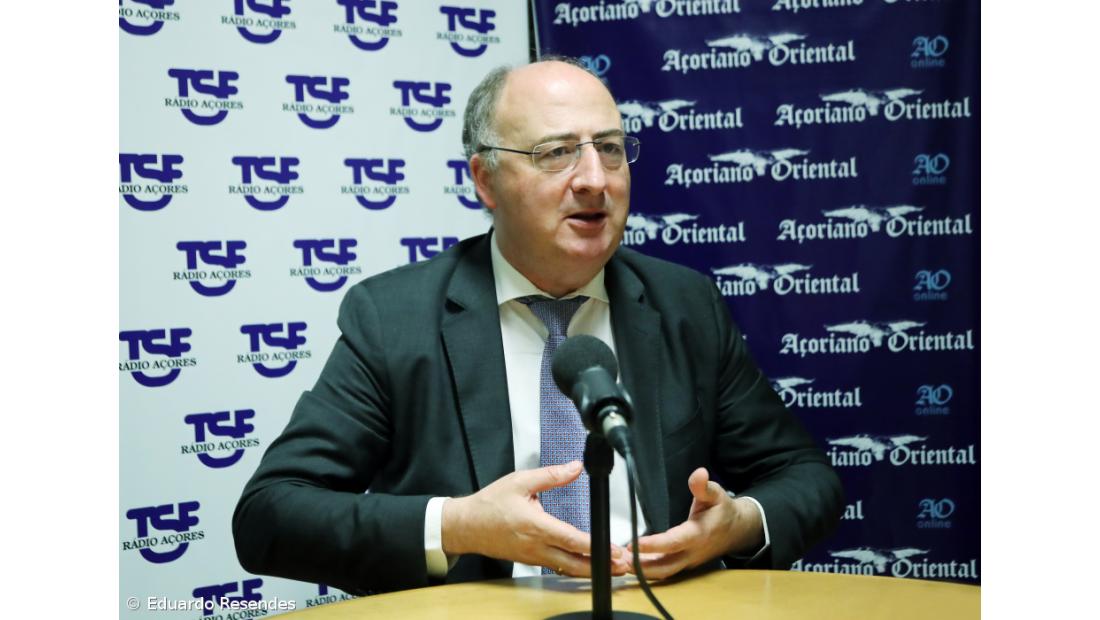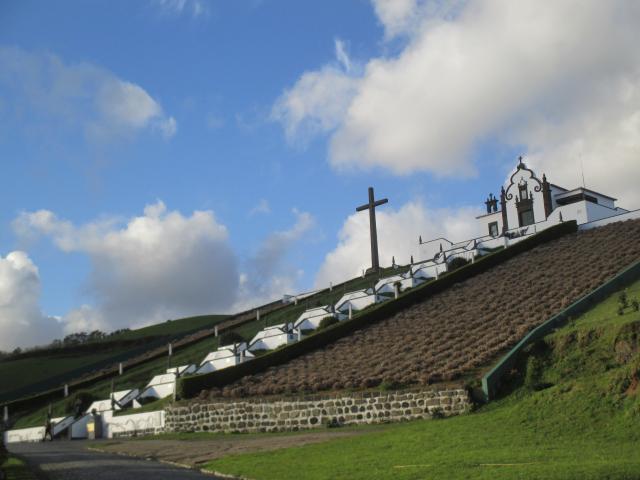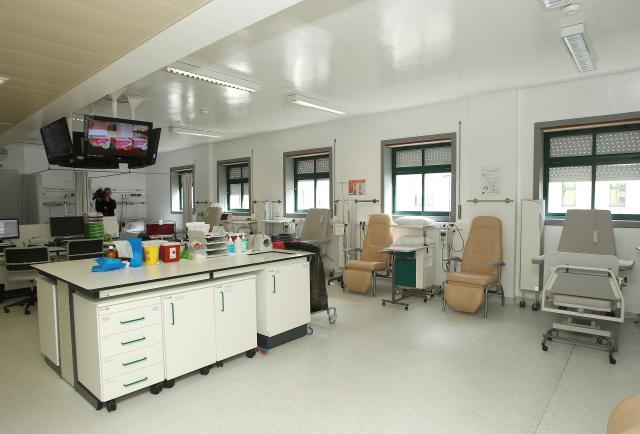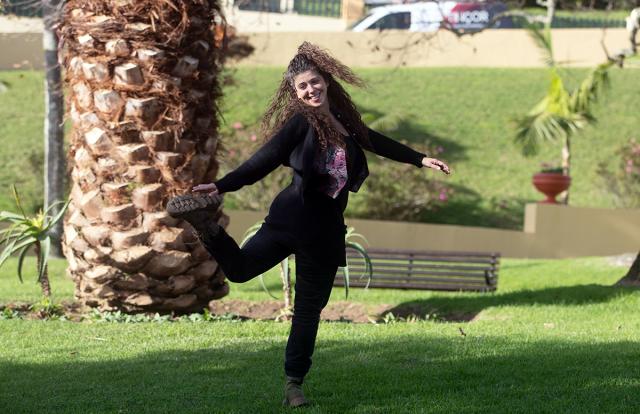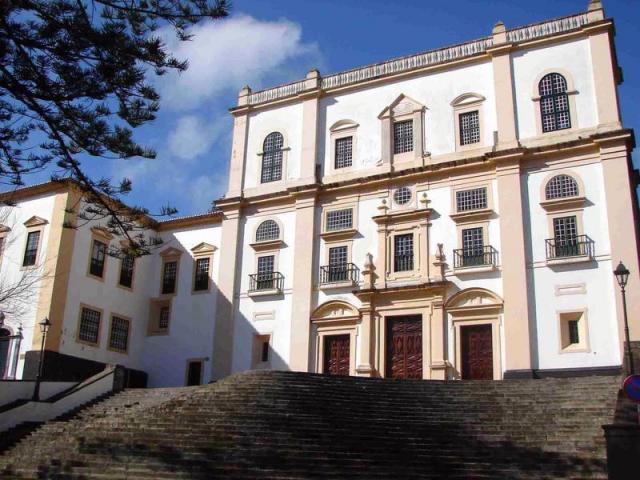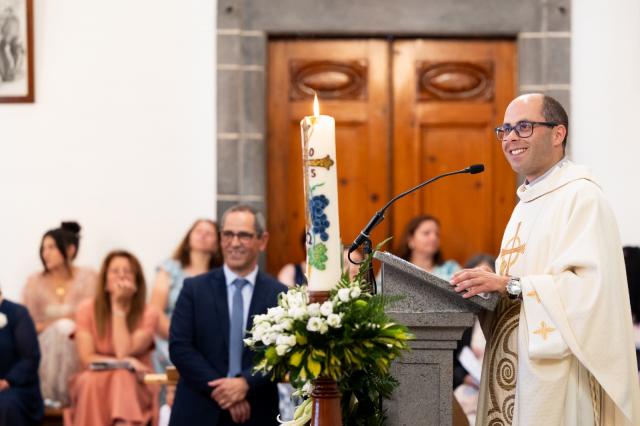You came to the Azores to present "An Agenda for Our Land - Azores 2022". What agenda is it and what is its objective?
PSD MEPs are in charge of the Azores Mission. And all of us, in our respective fields, are committed to contributing to the development of the Azores, to using the funds, and to taking into account the specificity of the Azores in legislation. This book also has an agenda, but it is more than that: it aims at proximity, at contact with the institutions, with the land, at understanding what the problems are, at finding better solutions. Proximity is only achieved by being present.
The book is also a tribute to local power: it comprises the names of all parish council presidents of the Azores, the names of all mayors and councilors, as well as the cultural moments and festivities that take place in each municipality.
The book also includes all European programmes and an approach to what is known as the 'bazooka' - the Recovery and Resilience Facility (RRF); there is also room for a significant concern we have within the European Union, which is demography, in global terms, as well as our great challenge, which is birth rate. We are not always aware that Portugal is one of the richest countries on the planet, but also one of the oldest in terms of population. We are older because we last longer, but also because fewer and fewer children are born.
This has brutal implications: if you look at Portugal's average age in 1960, it was 27.8 years old; today, it is more than 40 years old. Demographics and birth rates are a European issue, also visible in the figures for the Azores as regards population loss.
The book approaches a specific programme as well, one that is essential for the Azores - POSEI, from which 76.7 million euros are received annually. All this aims at informing, at accounting for my work; it is a project that we will continue, after Portugal 20-30 is finished.
Could the Agenda also serve as a way of remedying the absence of an Azorean MEP in the European Parliament?
It doesn't necessarily have that goal. I started by saying that this book, dedicated to the Azores, is part of the Azores Mission, which is a commitment, also involving the Regional Government, to defend the Region's interests. It started with the Multiannual Financial Framework 2021-2027.
I am the coordinator of the European People's Party, the largest group in the Committee on Budgets, and I was on the negotiation team, where we try to antecipate issues (still in 2017 and 2018), in order to avoid the cuts planned for a territory like Portugal, both in Cohesion Policy and in the Common Agricultural Policy. And we always insist on territorial cohesion as an essential element, an aid to the outermost regions. And we managed to avoid the planned cuts, some around 50%!
We have therefore succeeded in making available the amounts that are essential for our development. And this continued with the MFF, which initiates national recovery and resilience plans; the Azores, for example, received 580 million euros only from that facility! An amount that firstly did not exist to face the pandemic.
But then it is not just the money that helps, we must also be aware of the regulations, as we are now seeking to fight climate change, which is an emergency.
According to the Climate Act, we must reduce emissions by 55% by 2030, and we want carbon neutrality by 2050. But this has to be done gradually and with exceptions for territories such as the Azores, which you cannot reach by train! People must be able to continue travelling and there must be exceptions in terms of air travel and maritime transport, so that these territories do not lose competitiveness.
This is something they are entitled to, and it takes their specific location into account. In this case, in the regulations that are emerging, we, PSD MEPs, have made exceptions regarding transport, namely maritime, but also in the aviation sector. I now hope that, at the European Council, the Prime Minister will have the strength to defend our proposal and our exceptions.
These are examples of the work and commitments we have made to benefit our territory. We must not forget that we are national parliamentarians and that the vote of Azoreans is equal to the vote of others. We already had that view, which was reinforced with this Azores Mission. We have succeeded in our positions: we have Members in key committees and we are attentive to designations of origin, for instance, by taking into account the quality of the products we want, their location, and what is unique.
Is there a need for specific policies for the outermost regions (ORs), such as the Azores?
There is a need to maintain specific programmes for the Azores. Regarding the strategy for the ORs, the PSD MEP Álvaro Amaro will be the one drawing this very important report.
And there is one point that we consider essential: that of the Azores having specific programmes. POSEI is a specific program. However, we need a POSEI for Transport, for example, which will be all the more necessary in the face of energy costs, and in the face of increases in transport costs.
This programme specificity will also be at the forefront of the next multiannual financial framework, after 2028. At the moment, several resources have been guaranteed for the Azores - more than EUR 2.6 billion for the 2021-2027 period.
It is important that the government does not prevent the Azores from applying to the thematic operational programmes where there are the cohesion funds. It is also essential that the government, through the Development Bank, for example, creates an instrument for the capitalization of companies, and that is possible.
If it were for the State, the government would have already done so; Prime Minister António Costa would have already launched such a programme. It is easy to create an instrument for the capitalizaton of companies. If one does not want to create it in national terms, then create one for the regions, in particular for the Azores. That would be fundamental!
I myself was the negotiator of what is called InvestEU, a financial instrument that aims at mobilizing EUR 400 billion in 2021-2027, and where there is the possibility of creating an instrument for the capitalization of companies, if governments want to.
Now, the necessity is evident. First there was the pandemic: companies that are economically viable are facing difficulties because of Covid. Then comes the war. However, still before the war, there was already a scaling of prices of raw materials and not only. People sometimes think - and media try to convey that idea - that energy only increased because of the war. No. It was already increasing and precisely because of the climate objectives that we have. And this requires gradualism, which is what we advocate: programming and distributing a resource fairly.
How much will the Just Transition Fund give to the Azores?
The government did not allocate any amount for the Azores in this regard. When we talk about the “bazooka”, it is EUR 13.9 billion for Portugal in non-repayable subsidies. And it would be EUR 14.2 billion if we wanted to borrow. The government only wanted 2.7 billion. Very well.
Now, something that has not yet been publicly spoken. Because Portugal grew less than the other Member States, because it responded in a less positive way, in addition to those 13.9 billion - for which the Recovery and Resilience Plan was built and designed - there will now be an additional 1600 million euros in grants. Other member states will receive less: Romania will receive 2 billion less because it responded better to the crisis and grew more. We will receive another 1600 million euros. How much will the Azores receive from this additional EUR 1600 million? It is important that the government looks at territories for their competitiveness, productivity and, at the same time, territorial cohesion, and does not look at territories with votes in mind.
This is completely wrong and is not even a way of achieving the objective of funds, namely cohesion policy, which is to reduce regional disparities. It aims at helping regions that need it the most and face the most difficulties. This must always be remembered, and this is something that we, the PSD Members of the European Parliament, always do, in defence of the whole territory.
You addressed POSEI and its importance for agriculture, a vital sector in the Azorean economy. Is the financial envelope sufficient to cope with the economic crisis and the inflation that is already being felt?
We also need to trigger exceptional measures, such as the emergency reserve, and with a higher endowment. We have insisted on this. It is also important to realize that Member States have to play their part and there are countries that have given aid to businesses and sectors, even state aid. This has not been the case [in Portugal] as it should be, particularly for these sectors and for the Azores, especially concerning agriculture.
Now, there will be other constraints, which I have already mentioned but which I have not specified. Sometimes there are also those who want, for example, that people do not consume meat. There are those who have such an agenda in the European Parliament. And then how do you do it? They use the climate hitchhiker and say: let's put a number of conditions in place, so that transport for animals is almost impossible. And then they try to almost equate animals with industries, because animals are also responsible for emissions. This agenda is dangerous, we have been struggling with it too.
Agriculture: there should be support and the idea of protected designations of origin, for example, is very important. The agri-food industry is also essential. And hopefully there will be no other constraints, such as those related to the transport of animals or to excessive environmental requirements.
In the case of the Azores, it would be interesting to know what is the global emission amount. The situation might even be a negative one. It would be interesting to look at that. So let us not make it difficult for this sector, as some people want, with regulations, legislation and so on.

